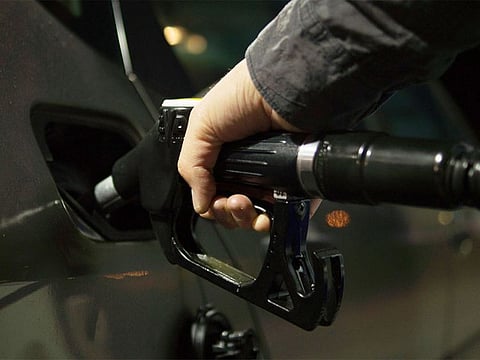Pakistan increases petrol price by Rs35 per litre
Price hike comes days before IMF delegation is set to visit Pakistan

Islamabad: Pakistani motorists braced for pain at the fuel pumps after the government hiked petrol prices by as much as Rs35 per litre.
On Sunday morning, Finance Minister Ishaq Dar announced a Rs35 increase in the prices of petrol and diesel. “Petrol and diesel prices will be increased by Rs35 each, and kerosene oil and light diesel oil will be increased by Rs18 each,” he said in his televised comments. Dar said the government had to raise the prices of petroleum products following the recent devaluation of the Pakistani currency and up to an 11 per cent increase in global fuel prices.
The statement came 10 minutes before the new prices were enforced. The last-minute announcement was aimed at preventing artificial shortages and hoarding of fuel in anticipation of price rises, the officials said. However, speculations ¬of a massive hike in petrol prices resulted in long queues at petrol pumps in many parts of the country a day earlier.
IMF talks and loan resumption
Pakistan revises petroleum prices every fortnight, but the latest hike comes two days before the scheduled revision as the government is set to begin talks with the International Monetary Fund (IMF). The prices of petroleum products were hiked days before the IMF delegation is set to visit Pakistan on January 31 to discuss the stalled ninth review of the country’s current funding programme. Pakistan is seeking a crucial instalment of $1.1 billion from the IMF to support the battered economy.
New fuel prices as of January 29
Petrol: Rs249.80 per litre High-speed diesel: Rs262.80 per litre Kerosene oil: Rs 189.83 per litre Light diesel oil: Rs187 per litre
More taxes coming?
Pakistan media reported that the government has prepared two draft ordinances to impose Rs200 billion in new taxes. The development was reported days after the Pakistani government indicated that it was willing to comply with all tough conditions set by the IMF for the next tranche of the bailout package. Pakistan’s government is also considering more gas and power tariff hikes, abandoning the power sector subsidy and introducing sales tax on raw materials for the export sector, according to local media reports.
Pakistan’s main opposition leader and former prime minister Imran Khan criticised the petrol price rise, saying that the “total mismanagement” of the economy by the coalition government has “crushed the masses and salaried class”. He also warned of electricity and gas price hikes and “35% unprecedented inflation expected with Rs200b mini-budget” in the coming days.
Pakistanis hit hard
When fuel prices go up, consumers feel the pain directly at the pump but also indirectly when higher transportation costs raise the prices of everything including basic necessities such as bread and milk. Pakistanis described the Rs35 per litre increase as “absolutely devastating.” Citizens frustrated by rising gas and food prices questioned the IMF programme. “If IMF funds come with harsh conditions and extreme increases in fuel and energy prices, what difference would the funding make to our lives? Common people will continue to suffer before and after IMF,” complained Atiqa Riaz, a high school teacher, while talking to Gulf News.
Sign up for the Daily Briefing
Get the latest news and updates straight to your inbox



